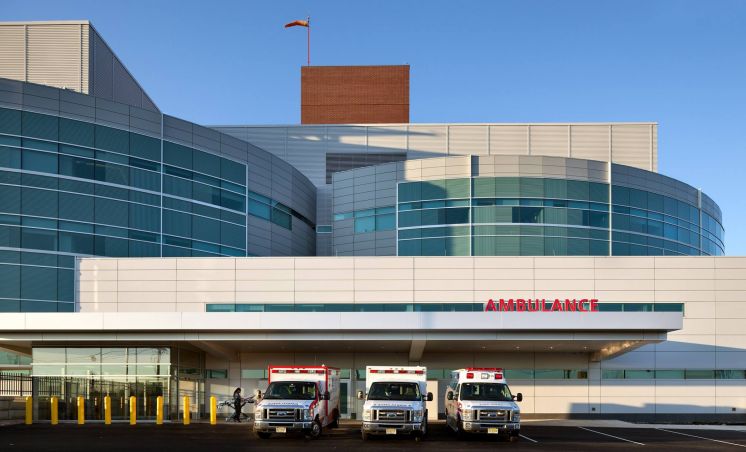St. Joseph’s Becomes First Accredited Geriatric Emergency Department in New Jersey
- font size decrease font size increase font size
The dedicated Geriatric Emergency Department at St. Joseph’s University Medical Center in Paterson is one of just nine departments in the country – and the only one in New Jersey -- to achieve accreditation from the American College of Emergency Physicians (ACEP).
“We are dedicated to providing specialized emergency care to our aging population and strive to create innovative solutions to care for our patients, their families and our community,” said Mark Rosenberg, DO, Chairman of Emergency Medicine and Chief Innovation Officer, St. Joseph’s Health. “We are grateful to ACEP for recognizing the expertise of our staff and the healing environment we have created for our aging community members.”
With about 20 percent of patients visiting the ED who are 65 and older, St. Joseph’s launched the Geriatric Emergency Department in 2009. ACEP’s Geriatric Emergency Department Accreditation (GEDA) program promotes the goals of quality care for older adult patients: enhanced staffing and education, geriatric-focused policies and protocols including transitions of care, quality improvement and outcomes, and preparation of the physical environment. ACEP launched this effort to improve and standardize emergency care for older patients and to recognize hospitals that meet and exceed national geriatric care guidelines.
“Older adults visit emergency rooms at a higher rate, often present with multiple chronic conditions and face more social and physical challenges than the general population,” said Paul Kivela, MD, MBA, FACEP, president of ACEP. “Seniors visiting ACEP accredited emergency departments can be assured that the facility has the necessary expertise, equipment and personnel in place to provide optimal care. This initiative enhances acute geriatric emergency care, especially in rural areas, and helps seniors ease back into their daily lives after they visit the ER.”
At St. Joseph’s, the physical environment of the Geriatric Emergency Department includes thicker, more comfortable mattresses, enhanced lighting and noise reduction – all measures to improve patient healing and outcomes. A medication reconciliation program also is in place to allow a pharmacist and toxicologist to review patients who are prescribed five or more medications to identify potential risks. They then work directly with the patient and primary care physician to alleviate any concerns. Each patient also receives a personalized phone call within 24-48 to follow up on the visit and answer additional questions. The Geriatric ED is led by Marianna Karounos, DO, Chief of the Emergency Department and Medical Director of the Geriatric Emergency Department.
The voluntary accreditation includes three levels (similar to trauma designations) with specific criteria and goals for clinicians and administrators. Requirements begin with demonstrating that the participating emergency department includes both a physician and nurse with specialized geriatric training on staff, meets environmental criteria such as easy patient access to water and mobility aids, and implements a geriatric quality improvement project.
Visit https://www.acep.org/GEDAHome/ for more information.

